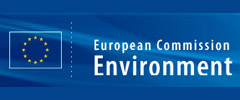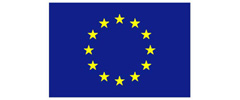WECF Statement to the 57th Session of the Commission on the Status of Women (CSW)
The main theme of this session will be “The elimination and prevention of all forms of violence against women and girls”.
04.12.2012

In this statement, WECF wants to highlight the fact that environmental degradation can amount to violence against women and girls as it can have extreme impacts on their living conditions, destroy the basis of their livelihoods, and lead to irreversible damage to their health. WECF focuses on four matters of concern namely; 1) mining, 2) WASH, 3) chemicals and 4) climate change, and calls upon governments to take adequate measures.
DOWNLOAD THE FULL STATEMENT HERE
Mining and other extractive industry activities are in many areas the cause of inhabitable land and health risks for workers and their communities due to long term radioactive pollution, air pollution and pollution of drinking water. Women are mostly the ones taking care of ill family members and children that are born with birth defects related to mining activities. Besides, women prostitution, and the violence that comes with it, is also common in the mining areas. WECF states that governments have to develop a UN framework for sustainable mining, taking into account environmental damage and include gender sensitive perspective.
For women, access to Water, Sanitation, and Hygiene (WASH) facilities is often very limited. Wash-related illnesses such as diarrhoea and helminth infections increase the work-load of women. Also, a lack of sufficient sanitation facilities increase women's illnesses, such as urinary tract infections, dermatitis, abdominal pains, vaginal scabies, and can cause complications during pregnancy. Due to a lack of privacy, often inflicted by gender roles, women's limited access to WASH facilities increases risk of sexual violence. Harassment and security risks are still a topic in urban public sanitation facilities.
Particular chemicals have a more devastating effect on women than on men, because it disrupts their hormone system in such a way that they have an increased risk of breast cancer, ovary cancer and to give birth to children with birth-defects. WECF calls governments to make their chemical policies stricter to protect women and children and to make women in the Global South aware of (and how to protect themselves from) the health risks related to hazardous chemicals.
Concerning natural disasters resulting climate change, WECF requests governments to develop a fair and gender sensitive climate agreement. The interests and needs of women should be heard and it should be guaranteed that women have the right to access land, services, resources and climate-change education.

































